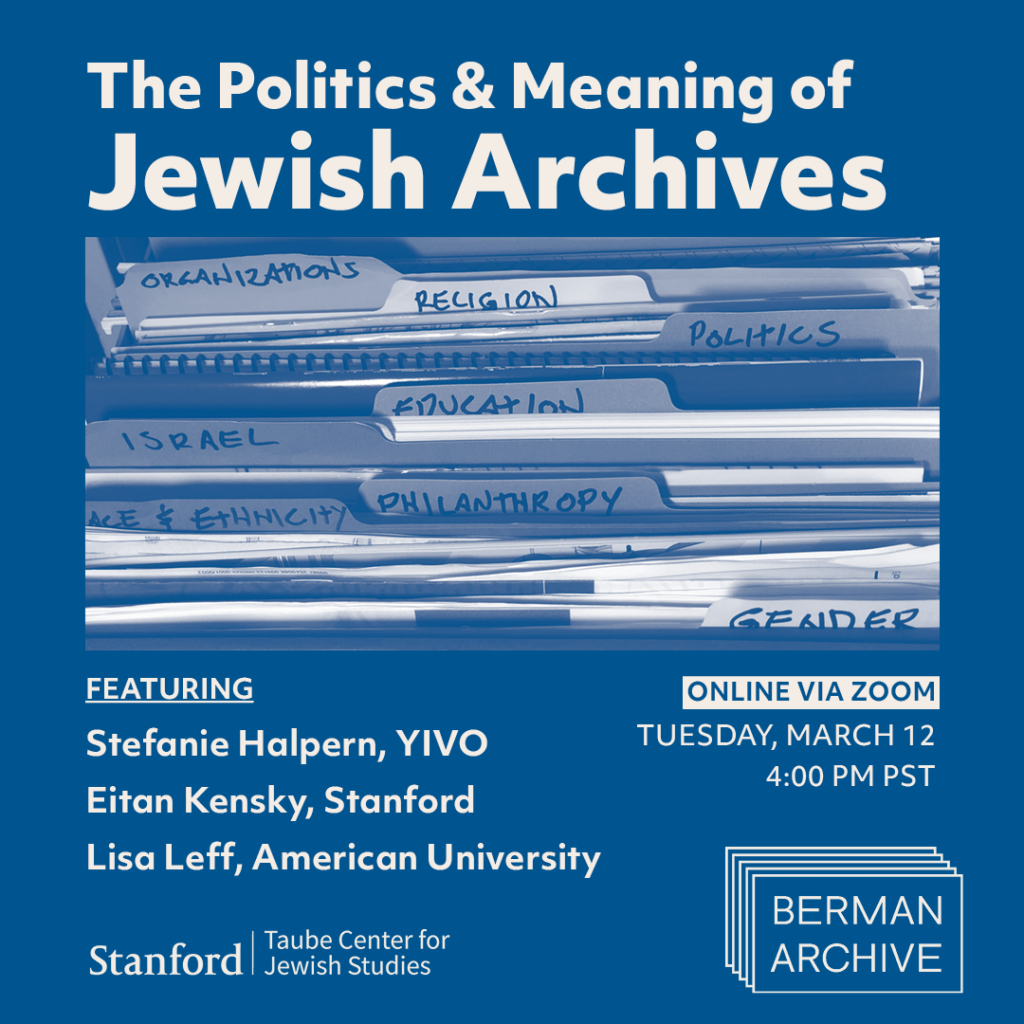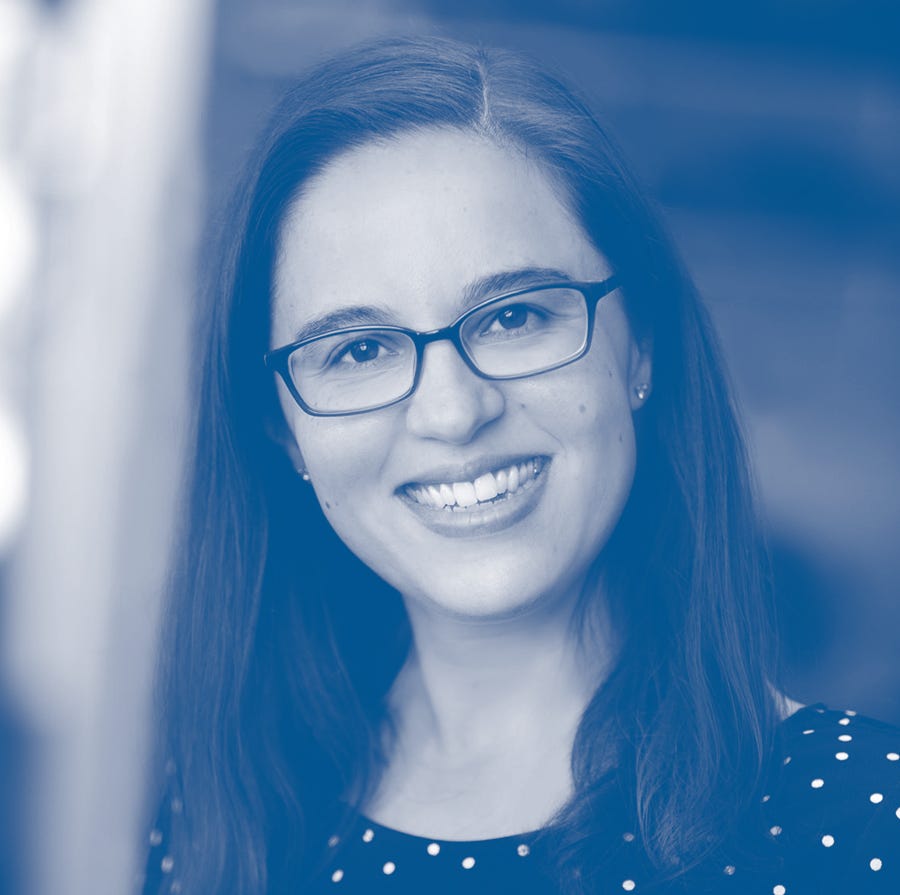Hello and welcome to the January edition of the Documensch Newsletter. We’re kicking off the new year with a war still raging in Gaza, antisemitism fears rising in the US and around the world, and an American Jewish community in flux. We remain committed to talking with the practitioners, professionals, and scholars who make this community tick, and using our archival holdings to inform today’s discourse.
We start 2024 strong: We interviewed Rella Kaplowitz of the Schusterman Family Philanthropies about her Jewish professional experience and her connection and commitment to research and archives. We have details about our next event in March on the Politics and Meaning of Jewish Archives. We address recent concerns about antisemitism, Israel, and college campuses and their students. And finally, we analyze the many substantive polls conducted since October 7 that gauge Jewish perceptions of antisemitism.
As always, reach out with feedback, suggestions of articles we should consider sharing, or ideas for documents we should consider archiving. We can be reached at bermanarchive@stanford.edu.
Thanks for reading,
-Ari
Ari Y Kelman, Director, Berman Archive
Q&A: Rella Kaplowitz on Research and Jewish Philanthropy
The Berman Archive is committed to engaging with the broader Jewish professional community by preserving collections from a diversity of perspectives, and highlighting points of view from the mainstream and the margins of American Jewish life.
This month we interviewed Rella Kaplowitz, the Director of US Jewish Grantmaking at Charles and Lynn Schusterman Family Philanthropies. She helps to make sure the organization has the right information to gain insights to inform its work, and works with grantees and partners to enhance their capacity for data, metrics, strategy, performance and evaluation. In short, she speaks our language (research and documents).
Berman Archive: How would you describe your professional experience in the Jewish world?
Rella Kaplowitz: I am a Director of U.S. Jewish Grantmaking and I really like what I do – I get to sit at the intersection of strategy, data, practice and learning. Both at Schusterman and in the field of philanthropy, I get to help define and grow what it means to gather data and evidence and make strategic decisions based on that information. It’s a gift to work in service of the Jewish world.
I spent a good chunk of my career outside the Jewish community, and honestly never thought I’d return. Now I’ve been at the Charles and Lynn Schusterman Family Philanthropies for almost ten years, which feels wild to say!
I learned a lot and built skills that were not available in the Jewish world at that time. And so, getting to bring all that I learned home to my own community feels powerful. I see my work as contributing to Schusterman’s ability to invest in and strengthen Jewish life, which during this intense moment in Jewish history, feels even more important.


Did you ever wonder who decides what items belong in an archive and what is just junk? What about the archive of an institution? A person? A People? Join the Berman Archive for an online event March 12 at 4pm PST to discuss the history, politics, and meaning of Jewish archives with 3 leading experts in the field. We’ll consider questions of provenance and motivations for creating specifically Jewish archives, as well as the collections and description practices that mark them. We’ll also delve into who exactly these archives are for and explore ways that collections can be useful and meaningful for researchers, Jewish professionals, and anyone with an interest in engaging with artifacts from the past.
Antisemitism and Israel on College Campuses
The question of who should lead universities’ efforts to fight antisemitism on their campuses has grown fraught and highly politicized. Without going into the details of specific recent events, a particularly challenging theme in public discussions of this matter is the devaluing of subject area expertise on matters of Jewish life, Israeli history, and even antisemitism itself.
The Berman Archive is dedicated to helping raise the level of informed discourse, so we found a couple of sources in our collection that bear directly on historical concerns for Jewish students on college campuses. There are many such articles in the Berman Archive, illustrating the fact that these discussions and the concerns that animate them have been underway for a very long time. We offer this selection of our holdings in the hope that the current discourse might be informed and influenced by exploring the history of the American Jewish community’s deliberations on this issue.
Concerns about campus discussions of Israel and Zionism have been underway for decades. In 2012, The David Project published this strategy document for advancing Israel advocacy on US campuses. In 1995, the American Jewish Committee published this collection of three papers that address the interplay of antisemitism, Anti-Zionism, and criticism of Israel as it is informed by concerns for the well being of Jewish students and the values of Academic freedom. That same year, the Journal of Jewish Communal Service published this study of Jewish student perceptions of antisemitism at UC Berkeley.
This 1983 article from the Journal of Jewish Communal Service addresses the diversity of American Jewish college students and addresses the significance of doing focused and culturally-appropriate outreach to underrepresented groups including Russian, Sephardic, Israeli, and other immigrant groups.
One recent proposal for addressing the surge in campus antisemitism advocated the creation of a new crop of Jewish universities. This idea is far from new, as documented in this 1948 article from the National Community Relations Advisory Council which reported on a plenary panel that discussed this very issue.
Jewish college students have long been the subject of curiosity and concern. In 1946, Robert Shostek published this national study of Jewish college students. It gives a broad statistical portrait of students’ interests, enrollments, and demographics, with little attention to their opinions, experiences, or the campus climate.
Polling Perceptions of Antisemitism

Since the war in the Gaza Strip began on October 7, the question ever-present in American Jewish minds persists: what does this mean for antisemitism? By the ADL’s count, there has been a notable surge in reports of antisemitism: approximately 3,000 reported incidents since Oct. 7. Ultimately, for most of the respondents, the uptick means that antisemitism has pervaded their communities and country at levels not previously felt. We’ve compiled and summarized recent polling on Jewish perceptions of antisemitism with the hope that we can offer a snapshot of this unsettling moment for American Jews.

